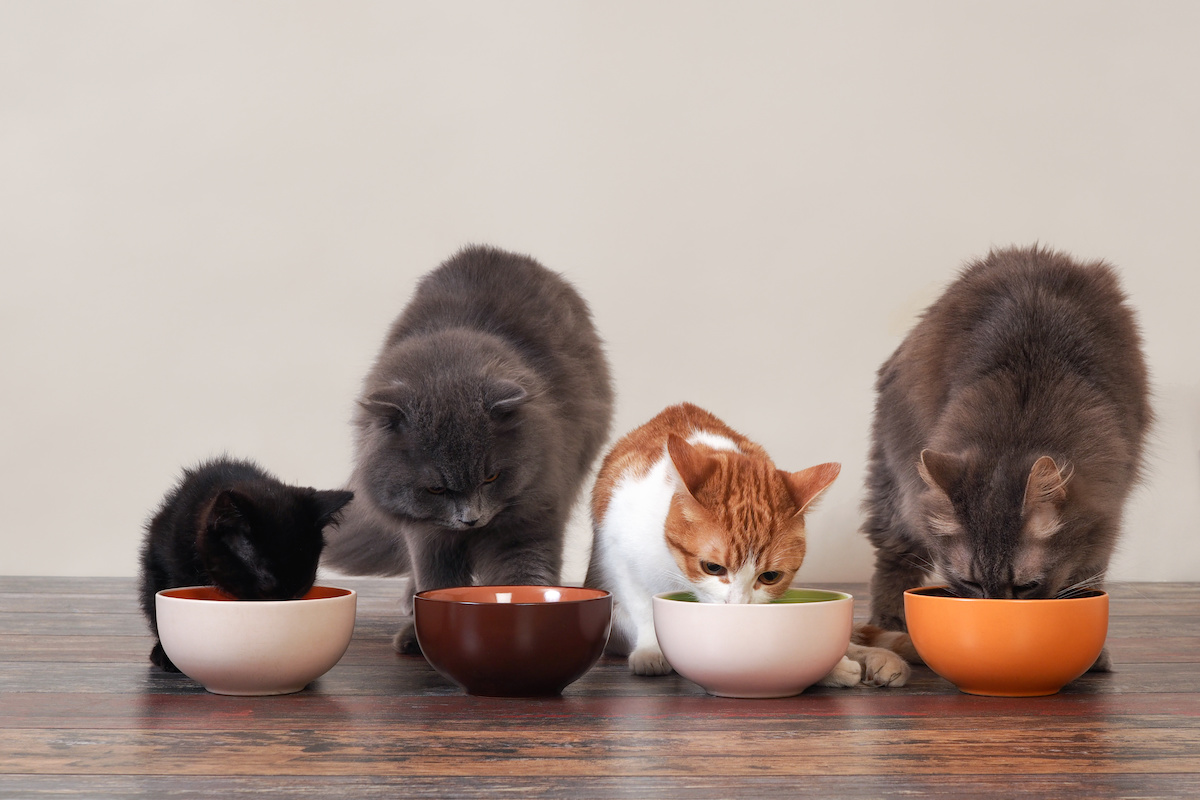Choosing pet foods is an important decision that can significantly impact their overall health and well-being.
As responsible pet owners, understanding the reasons for selecting which pet food you give them is essential.
So to help you out, this blog will explore some of the key considerations for selecting a food and provide valuable tips to ensure that your pets receive the nutrition they need to thrive.
The Importance of Quality Pet Nutrition
The Basics of Pet Nutrition
To make informed decisions about your pets’ diets, it’s crucial to have a foundational understanding of pet nutrition. Dogs and cats, like humans, require a balanced diet consisting of:
- Proteins
- Fats
- Carbohydrates
- Vitamins
- Minerals
Each of these components plays a unique role in supporting various aspects of your pet’s health, from maintaining a healthy coat to supporting their immune system.
Why Nutrition is Important for Pet Health
Quality nutrition directly influences your pet’s overall health, longevity, and vitality. Proper nutrition can prevent various health issues, from obesity to dental problems, and can contribute to a shiny coat, strong teeth, and a robust immune system.
Conversely, poor nutrition may lead to a range of health issues, affecting your pet’s energy levels, digestion, and even their behavior.

Navigating the World of Pet Food
Different Types of Pet Food
Pet food comes in various forms, each catering to different preferences, dietary needs, and lifestyles. Explore the differences between:
- Dry kibble
- Wet canned food
- Raw diets
- Specialized prescription diets
Understanding the options available will help you make choices that align with your pet’s individual requirements.
Make Sure to Read Pet Food Labels
Reading pet food labels can be challenging, but it’s a crucial skill for pet owners. Learn to:
- Navigate ingredient lists
- Understand nutritional information
- Identify potential red flags
Look for key elements such as high-quality protein sources, limited fillers, and the absence of artificial additives or preservatives.
Keep in Mind the Life Stages of Your Pet
Pets’ nutritional needs vary throughout their life stages. Puppies and kittens have different dietary requirements than adult or senior pets. Explore how to choose the right food for each life stage, taking into account factors such as:
- Growth
- Maintenance
- Specific health considerations
How Ingredients Affect Pet Food Selection
High-Quality Proteins are Essential
Proteins are the building blocks of a healthy pet diet. Explore the significance of high-quality protein sources, such as meat and fish, and understand how protein contributes to muscle development, energy, and overall vitality.
Fats are Needed for Energy and Nutrient Absorption
Fats are a crucial component of pet diets, providing energy and aiding in the absorption of essential nutrients.
Learn about the importance of incorporating healthy fats, such as omega-3 fatty acids, into your pet’s diet and how they contribute to skin health and coat shine.
Carbohydrates Help Balance the Diet
While dogs and cats are primarily carnivores, carbohydrates can play a role in providing energy and dietary fiber.
Discover the types of carbohydrates that are suitable for pets, and learn how to strike a balance that supports overall health without excessive reliance on fillers.
Take into Account Dietary and Special Considerations
Your Pets’ Breed and Size Needs Play a Role
Different breeds and sizes of dogs and cats come with unique physiological characteristics that influence their nutritional requirements.
Large breeds, such as Great Danes or Bernese Mountain Dogs, may have specific needs related to bone and joint health, while small breeds like Chihuahuas may benefit from smaller kibble sizes and higher energy density.
Explore the intricacies of breed and size-specific nutritional needs to ensure your pet’s diet is tailored to support their:
- Growth
- Development
- Well-being
Managing Allergies and Sensitivities
Pets, like humans, can develop allergies and sensitivities to certain foods. Common allergens include ingredients like beef, chicken, grains, and dairy.
You pet may be having an allergic reaction if you notice things like:
- Itching
- Gastrointestinal issues
- Skin irritations
For pets with known sensitivities, consider hypoallergenic or limited-ingredient diets that eliminate potential allergens, providing a well-tolerated and nutritious alternative.
Consult with your veterinarian at Animal Care Center to pinpoint specific triggers and develop a suitable diet plan for your pet.
Specialized Diets for Health Conditions
Pets diagnosed with health conditions, such as diabetes, kidney disease, or obesity, may require specialized diets to manage their conditions effectively. Veterinary-prescribed therapeutic diets are formulated to address specific health concerns and often play a crucial role in managing chronic illnesses.
For instance, diabetic pets may benefit from a diet that regulates blood sugar levels, while cats with kidney disease might require a renal support diet.
Work closely with an experienced veterinarian, like the team at Animal Care Center, to identify the most suitable therapeutic diet for your pet’s unique health requirements, ensuring that their nutritional needs are met while managing their specific condition.
Cater to Your Pets’ Life Stages
Just as with breed-specific considerations, the life stage of your pet significantly influences their dietary requirements.
Puppies and kittens, in their early stages of life, need nutrient-dense diets to support growth and development. As pets transition into adulthood, their nutritional needs shift to maintenance, and eventually, senior pets benefit from formulations that address age-related concerns such as joint health and cognitive function.
Explore age-appropriate diets and understand the importance of transitioning your pet to different formulas as they progress through various life stages. This ensures that their nutritional needs are met at every phase of their lives.
Exploring Dietary Preferences
Pets, like humans, may have individual preferences when it comes to food textures and flavors. Some pets prefer wet or canned food for its moisture content and palatability, while others may enjoy the crunchiness of dry kibble.
Additionally, raw diets and home-cooked meals have gained popularity among pet owners seeking to provide a more natural and minimally processed diet. Understand the pros and cons of each feeding option, considering factors such as:
- Convenience
- Nutritional adequacy
- Your pet’s preferences
Consult with the veterinarians at Animal Care Center to ensure whichever method you choose aligns with your pet’s dietary requirements and health status.

5 Tips for Choosing Pet Food
1. Consulting with Your Veterinarian
One of the most crucial aspects of ensuring your pet’s nutritional needs are met is regular consultation with your veterinarian. Veterinarians are trained to:
- Assess your pet’s overall health
- Address specific concerns
- Provide tailored dietary recommendations
Schedule routine check-ups to discuss your pet’s diet, taking into account their age, breed, size, activity level, and any existing health conditions. Your veterinarian can guide you on choosing the most suitable commercial pet food or recommend specific dietary adjustments based on your pet’s unique requirements.
Establishing an open line of communication with your vet fosters a collaborative approach to your pet’s well-being.
2. Introducing New Foods Gradually
Transitioning your pet to a new diet should be a gradual process to prevent digestive upset and ensure a smooth adjustment. When introducing a new pet food, mix a small amount with their current food and gradually increase the proportion of the new food over a period of 7-10 days.
Monitor your pet for any signs of gastrointestinal distress, such as vomiting or diarrhea, and adjust the transition pace accordingly. This gradual introduction allows your pet’s digestive system to adapt to the new food, minimizing the likelihood of adverse reactions.
3. The Role of Hydration in Pet Diets
Hydration is a crucial aspect of pet nutrition often overlooked by pet owners. Ensure your pet has access to fresh, clean water at all times. Wet or canned foods can contribute to your pet’s overall hydration, especially in cats, who may have a lower thirst drive.
Additionally, moist foods can be beneficial for pets with specific health conditions, such as urinary tract issues.
Understanding the role of hydration in your pet’s diet is vital for supporting their overall health and well-being.
4. Monitoring Portion Control and Weight Management
Maintaining a healthy weight is essential for your pet’s overall health and longevity. Be mindful of portion control, following feeding guidelines provided by the pet food manufacturer or your veterinarian.
Regularly assess your pet’s body condition, adjusting their food portions based on their:
- Age
- Activity level
- Weight management goals
Obesity in pets can lead to various health issues, including arthritis and diabetes, so proactive weight management is a key component of responsible pet ownership.
5. Evaluating the Quality of Treats and Supplements
Treats and supplements contribute to your pet’s overall daily caloric intake and nutritional balance. Choose high-quality treats and supplements that align with your pet’s dietary requirements. Be cautious about overfeeding treats, as excessive caloric intake can lead to weight gain.
Additionally, consult with your veterinarian before introducing supplements to ensure they are necessary and appropriate for your pet’s individual needs.
Choosing Pet Food for Your Furry Companions
Choosing pet food that’s best for your pets is a fundamental aspect of responsible pet ownership. By understanding the basics of pet nutrition, navigating the diverse world of pet food, considering ingredients, addressing specific dietary needs, and making informed choices, you can ensure that your furry companions lead healthy, happy lives.
Remember, each pet is unique, so tailor your choices to meet their individual requirements, and consult with our team of veterinarians at Animal Care Center for personalized guidance on your pet’s nutrition journey.






